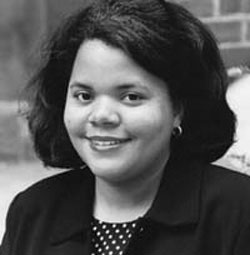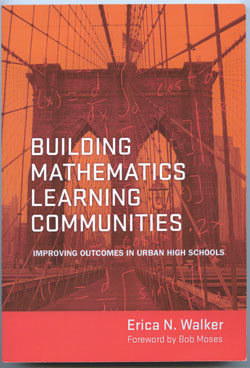Changing the Odds for Math Success
Walker, who did research for her book at a New York City school she calls Lowell High School, learned that family, peer and teacher networks contributed significantly to the math success of high-achieving students. She suggests that by strengthening peer academic communities, grounding rigorous educational content in real-world experiences and holding students to higher expectations, educators, families and communities can raise the bar for math achievement by all.
Building Mathematics Learning Communities, which contains a foreword by civil rights activist and math educator Bob Moses, describes several models for such an approach. Walker suggests that schools can better serve students of color through practices that support mathematics engagement and build on students’ strengths. Given that the United States ranks 25th among OECD nations in secondary students’ mathematics achievement, Walker argues, it is high time we capitalize on all students’ significant mathematics potential and — across and within schools — “ensure meaningful mathematics learning for all.” —Steven Kroll
Published Friday, Dec. 7, 2012

